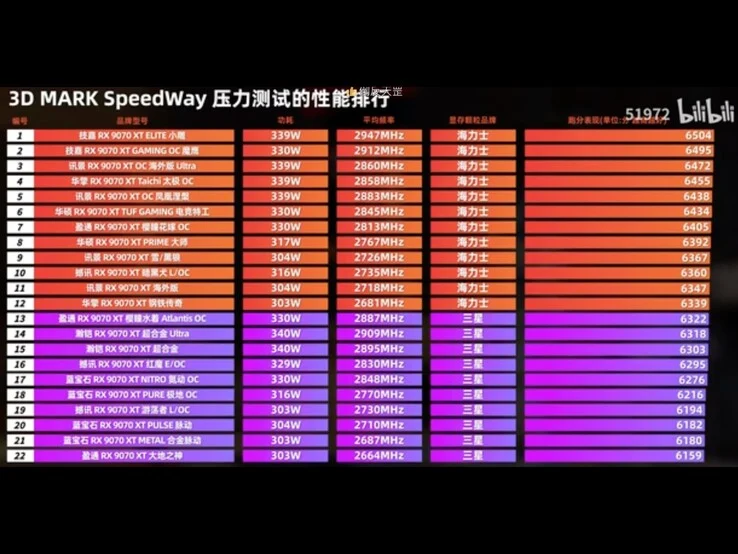Key Takeaways
1. AMD is transitioning to Samsung memory modules for its Radeon RX 9070 XT graphics cards, replacing the original SK Hynix supplier.
2. Performance tests indicate that Samsung-equipped models are 1% to 2% slower than those with SK Hynix memory, based on synthetic benchmarks.
3. The actual gaming experience may not be significantly affected by the slight performance difference observed in benchmarks.
4. AMD confirmed that the performance drop is linked to the use of Samsung memory, which also offers improvements in thermal management.
5. Radeon RX 9070 XT GPUs with Samsung memory showed higher power consumption and clock speeds, but performance differences are minor and likely unnoticed in real-world gaming.
Evidence has emerged that AMD is shifting to memory modules developed by Samsung for its Radeon RX 9070 XT graphics cards. Reports indicate that these new models perform a bit lower than those with SK Hynix memory, which was the original supplier. However, the actual gaming experience might not be impacted, since the comparison relies on synthetic benchmarks.
Performance Insights
A tech reviewer from China observed a drop in performance in certain Radeon RX 9070 XT GPUs. After conducting tests, the reviewer discovered that GPUs equipped with Samsung’s GDDR6 memory modules were performing about 1% to 2% slower than their counterparts using SK Hynix modules. In a video, the reviewer compared more than 20 different models of the Radeon RX 9070 XT and highlighted this performance gap.
Confirmation from AMD
Additionally, the reviewer had a conversation with a member of the AMD team in China, who allegedly confirmed that the slower performance was indeed related to the use of Samsung modules. When the initial evidence of the switch to Samsung memory appeared, it was thought that this change aimed to enhance thermal performance. The report suggests that using Samsung’s memory did provide noticeable improvements in thermal management.
Power Consumption and Clock Speeds
Interestingly, the Radeon RX 9070 XT GPUs with Samsung memory tested recently showed higher power usage and clock speeds, yet still exhibited slightly inferior performance. The tests utilized the 3DMark Speedway benchmark, which should be taken into account as it does not accurately represent real-world gaming performance. In actual gaming scenarios, this 1% to 2% difference is likely to go unnoticed.
Source:
Link


